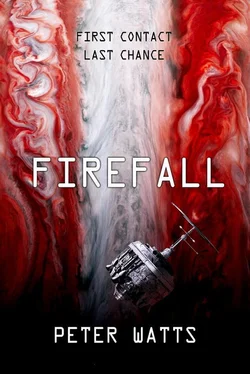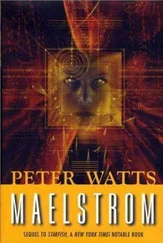Ultimately, all science is correlation. No matter how effectively it may use one variable to describe another, its equations will always ultimately rest upon the surface of a black box. (Saint Herbert might have put it most succinctly when he observed that all proofs inevitably reduce to propositions that have no proof.) The difference between Science and Faith, therefore, is no more and no less than predictive power. Scientific insights have proven to be better predictors than Spiritual ones, at least in worldly matters; they prevail not because they are true, but simply because they work.
The Bicameral Order represents a stark anomaly in this otherwise consistent landscape. Their explicitly faith-based methodologies venture unapologetically into metaphysical realms that defy empirical analysis—yet they yield results with consistently more predictive power than conventional science. (How they do this is not known; our best evidence suggests some kind of rewiring of the temporal lobe in a way that amplifies their connection to the Divine.)
It would be dangerously naïve to regard this as a victory for traditional religion. It is not. It is a victory for a radical sect barely half a century old, and the cost of that victory has been to demolish the wall between Science and Faith. The Church’s concession of the physical realm informed the historic armistice that has allowed faith and reason to coexist to this day. One may find it heartening to see faith ascendant once again across the Human spectrum; but it is not our faith. Its hand still guides lost sheep away from the soulless empiricism of secular science, but the days in which it guided them into the loving arms of Our Savior are waning.
—
An Enemy Within: The Bicameral Threat to Institutional Religion in the Twenty-First Century (An Internal Report to the Holy See by the Pontifical Academy of Sciences, 2093)
ALL ANIMALS ARE UNDER STRINGENT SELECTION PRESSURE TO BE AS STUPID AS THEY CAN GET AWAY WITH.
—PETE RICHARDSON AND ROBERT BOYD
DEEP IN THE Oregon desert, crazy as a prophet, Daniel Brüks opened his eyes to the usual litany of death warrants.
It had been a slow night. A half-dozen traps on the east side were offline—damn booster station must have gone down again—and most of the others were empty. But number eighteen had caught a garter snake. A sage grouse pecked nervously at the lens in number thirteen. The video feed from number four wasn’t working, but judging by mass and thermal there was probably a juvenile Scleroperus scrambling around in there. Twenty-three had caught a hare.
Brüks hated doing the hares. They smelled awful when you cut them open—and these days, you almost always had to cut them open.
He sighed and described a semicircle with his index finger; the feeds vanished from the skin of his tent. Headlines resolved in their wake, defaulting to past interests: Pakistan’s ongoing zombie problem; first anniversary of the Redeemer blowout; a sad brief obituary for the last wild coral reef.
Nothing from Rho.
Another gesture and the fabric lit with soft tactical overlays, skewed to thermal: public-domain real-time satellite imagery of the Prineville Reserve. His tent squatted in the center of the display, a diffuse yellow smudge: cold crunchy outer shell, warm chewy center. No comparable hot spots anywhere else in range. Brüks nodded to himself, satisfied. The world continued to leave him alone.
Outside, invisible in the colorless predawn, some small creature skittered away across loose rattling rock as he emerged. His breath condensed in front of him; frost crunched beneath his boots, bestowed a faint transient sparkle to the dusty desert floor. His ATB leaned against one of the scraggly larches guarding the camp, marshmallow tires soft and flaccid.
He grabbed mug and filter from their makeshift hook and stepped into the open, down a loose jumble of scree. The vestiges of some half-assed desert stream quenched his thirst at the foot of the slope, slimy and sluggish and doomed to extinction within the month. Enough to keep one large mammal watered in the meantime. Out across the valley the Bicamerals’ pet tornado squirmed feebly against a gray eastern sky but stars were still visible overhead, icy, unwinking, and utterly meaningless. Nothing up there tonight but entropy, and the same imaginary shapes that people had been imposing on nature since they’d first thought to wonder at the heavens.
It had been a different desert fourteen years ago. A different night. But it had felt the same, until the moment he’d glanced up—and for a few shattering moments it had even been a different sky, robbed of all randomness. A sky where every star blazed in brilliant precise formation, where every constellation was a perfect square no matter how desperately human imaginations might strain. February 13, 2082. The night of First Contact: sixty-two thousand objects of unknown origin, clenching around the world in a great grid, screaming across the radio spectrum as they burned. Brüks remembered the feeling: as though he were witnessing some heavenly coup, a capricious god deposed and order restored.
The revolution had lasted only a few seconds. The upstaged constellations had reasserted themselves as soon as those precise friction trails had faded from the upper atmosphere. But the damage had been done, Brüks knew. The sky would never look the same again.
That’s what he’d thought at the time, anyway. That’s what everyone had thought. The whole damn species had come together in the wake of that common threat, even if they didn’t know what it was exactly, even if it hadn’t actually threatened anything but Humanity’s own self-importance. The world had put its petty differences aside, spared no expense, thrown together the best damn ship the twenty-first century could muster. They’d crewed it with expendable bleeding-edgers and sent them off along some best-guess bearing, carrying a phrase book that spelled take me to your leader in a thousand languages.
The world had been holding its breath for over a decade now, waiting for the Second Coming. There’d been no encore, no second act. Fourteen years is a long time for a species raised on instant gratification. Brüks had never considered himself a great believer in the nobility of the Human spirit but even he had been surprised at how little time it took for the sky to start looking the same as it always had, at the speed with which the world’s petty differences returned to the front page. People, he reflected, were like frogs: take something out of their visual field, and they’d just—forget it.
The Theseus mission would be well past Pluto by now. If it had found anything, Brüks hadn’t heard about it. For his part, he was sick of waiting. He was sick of life on hold, waiting for monsters or saviors to make an appearance. He was sick of killing things, sick of dying inside.
Fourteen years.
He wished the world would just hurry up and end.
He spent the morning as he’d spent every other for the past two months: running his traplines and poking the things inside, in the faint hope of finding some piece of nature left untwisted.
The clouds were already closing in by sunrise, before his bike had soaked up a decent charge; he left it behind and ran the transects on foot. It was almost noon by the time he got to the hare, only to find that something had beaten him to the punch. The trap had been torn open and its contents emptied by some other predator who’d lacked even the good grace to leave a blood spatter behind for analysis.
The garter snake was still slithering around in number eighteen, though: a male, one of those brown-on-brown morphs that vanished against the dirt. It writhed in Brüks’s grasp, clenched around his forearm like a scaly tentacle; its scent glands smeared stink across his skin. Brüks drew a few microliters of blood without much hope, plugged them into the barcoder on his belt. He swigged from his canteen while the device worked its magic.
Читать дальше








